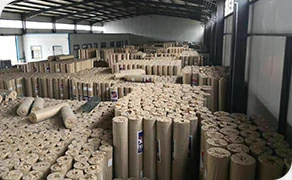 TEL:
+86-13102802206
TEL:
+86-13102802206
 Email:
fencenetting@china.com
Email:
fencenetting@china.com
 Language
Language
 TEL:
+86-13102802206
TEL:
+86-13102802206
 Email:
fencenetting@china.com
Email:
fencenetting@china.com
 Language
Language


Steel Mesh Rolls Applications and Benefits
Steel mesh rolls, also known as wire mesh rolls or welded wire mesh, have become an essential component in various industries and applications due to their versatility, strength, and durability. These rolls are typically fabricated from high-quality steel wires that are welded together at their intersections, creating a sturdy yet flexible mesh. The popularity of steel mesh rolls can be attributed to their numerous advantages and broad range of applications in construction, agriculture, and manufacturing.
Composition and Manufacturing
Steel mesh rolls are primarily made from carbon steel, stainless steel, or galvanized steel. The choice of material often depends on the specific requirements of the project, such as exposure to moisture, corrosive environments, or the need for enhanced strength. The manufacturing process involves cutting and bending wires to form a grid-like pattern, which is then welded at each intersection. The result is a robust mesh that can withstand significant weight, pressure, and environmental stressors.
Applications in Construction
One of the primary uses of steel mesh rolls is in the construction industry. They provide essential reinforcement in concrete structures, such as slabs, walls, and pavements. By embedding steel mesh within the concrete, builders can significantly enhance the tensile strength and overall durability of the structure. This reinforcement helps prevent cracking and ensures that the concrete can withstand various loads and stresses over time.
In addition to reinforcing concrete, steel mesh rolls are also used in the construction of fences, gates, and enclosures
. Their strength and resistance to deformation make them ideal for creating secure barriers around properties, gardens, and agricultural fields. Moreover, these mesh rolls are easy to install and can be custom cut to fit specific dimensions.Benefits in Agriculture

In the agricultural sector, steel mesh rolls serve numerous functions. They can be used as fencing to protect crops from wild animals and pests, thereby increasing the yield and quality of produce. Farmers often choose steel mesh over traditional wooden or plastic fencing due to its longevity and resistance to weathering. Unlike wood, which can rot or deteriorate over time, steel mesh maintains its integrity and continues to provide protection.
Additionally, steel mesh can be used in soil erosion control and landscaping projects. Mesh rolls can be laid down to stabilize soil and prevent erosion on slopes and embankments. They support vegetation growth while allowing water to drain through, creating a sustainable solution for maintaining soil stability.
Industrial and Manufacturing Uses
Beyond construction and agriculture, steel mesh rolls are employed in various industrial applications. They are commonly used in the manufacturing of filters, screens, and sieving equipment. Their uniform mesh openings allow for precise separation and filtration, making them an ideal choice for industries ranging from food processing to mining.
Steel mesh rolls are also integral to the production of protective barriers in machinery and equipment. They can be fabricated into safety guards, protecting operators from moving parts and preventing injuries while ensuring visibility and ventilation.
Conclusion
Steel mesh rolls are a versatile and reliable solution for a multitude of applications across different industries. Their strength, durability, and resistance to environmental factors make them indispensable in construction, agriculture, and manufacturing. As industries continue to evolve and demand innovative solutions, the use of steel mesh rolls is likely to increase, providing the necessary support for both current and future projects. Whether reinforcing concrete, protecting crops, or enhancing industrial safety, steel mesh rolls offer a practical and effective solution for a wide range of needs.